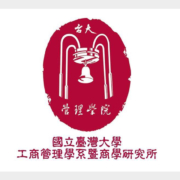Reimagining Decision-Making: The Emergence of Focus Theory of Choice
工商管理學系暨商學研究所
撰文者/工商管理學系暨商學研究所辦公室
The Spring 2024 Operation Management Seminar II, hosted by Prof. Jiun-Yu Yu, started by featuring a significant contribution from Dr. Peijun Guo, a distinguished professor and researcher from Yokohama National University, Japan. Held online over two sessions on March 7th and 14th, the seminar offered deep insights into the field of operation research and management science, with a particular focus on decision analysis under uncertainty and uncertainty modeling.
Dr. Guo’s presentation centered around the innovative Focus Theory of Choice (FTC). This theory has been at the forefront of decision-making research under uncertain conditions for the past two decades. The seminar began with a journey through the history of decision theories, starting from the foundational work of Pascal and Fermat on probability theory, through to the St. Petersburg Paradox posed by Nicholas Bernoulli, and leading up to the seminal Prospect Theory developed by Daniel Kahneman and Amos Tversky, which highlighted the role of cognitive biases in human decision-making.
The core of Dr. Guo’s discussion was the Focus Theory of Choice, which diverges from traditional decision theories by incorporating two distinct evaluation systems: The Positive Evaluation System (PES) and the Negative Evaluation System (NES). This dual-system approach aims to provide a more nuanced understanding of the cognitive processes underlying decision-making under uncertainty. Dr. Guo illustrated the theory’s capacity to resolve complex problems, such as the Ellsberg Paradoxes, demonstrating FTC’s significant implications for the field. Furthermore, the seminar highlighted the practical applications of FTC, mainly through Dynamic Focus Programming (DFP), as demonstrated in a case study involving Murakami Machinery Manufacturing Co. This example showcased how DFP, an extension of FTC, could be applied to real-world decision-making problems, such as bidding strategies, by leveraging a forward calculation approach that aligns closely with human intuition.
Despite the promising aspects of FTC, Dr. Guo also addressed the challenges associated with the theory, particularly its closeness to human cognitive processes, which, while a strength, also complicates the modeling of decision-making due to the numerous anomalies that can arise. However, these challenges were presented not as roadblocks but as opportunities for further research and exploration.
In conclusion, through Dr. Guo’s insightful presentation, Operation Management Seminar II provided a comprehensive overview of the Focus Theory of Choice, enriching the attendees’ understanding of decision-making under uncertainty. The seminar not only shed light on FTC’s historical evolution and theoretical underpinnings but also underscored its practical applications and the ongoing challenges and opportunities for future research in operations management and decision sciences.



